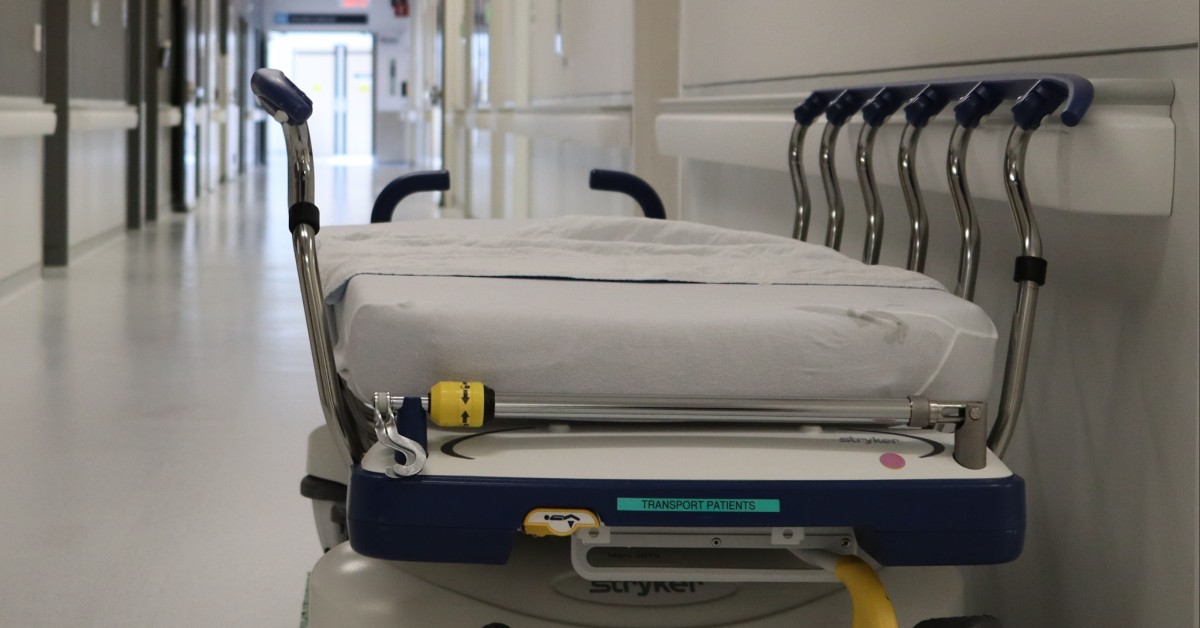
How to Become a Hospital Social Worker
Not everyone in a hospital wears scrubs. Some, like hospital [...]

Patient advocacy has always been a part of nursing. As Florence Nightingale, the founder of modern nursing, once observed, “Wise and humane management of the patient is the best safeguard against infection.” Nightingale consistently insisted that patients deserve the highest possible quality of care, and that when that standard isn’t met, medical professionals are obliged to take action. Her spirit lives on today in the American Nurses Association (ANA) Code of Ethics for Nurses, which states that nurses are responsible not only for caring for patients’ health and well-being, but also for protecting patients’ rights and patient safety.
The ANA’s Nursing: Scope and Standards of Practice states that “Advocacy is fundamental to nursing practice in all settings” and that “Advocacy occurs at the individual, interpersonal, organization and community, and policy levels.” All nurses are called to champion patients’ rights, but only one nursing role makes it its primary focus: nurse advocacy. When you become a nurse advocate, you will serve the interests of patients who need help to get the best possible quality of care.
In this role, you may be called a nurse advocate, or your title might be healthcare navigator, RN patient advocate, health advocate, patient liaison, RN case manager, patient advocate, or care manager. You may be employed by a hospital or a home care organization, or you may be self-employed and hired directly by patients and their caregivers. There are many ways to build a career in medical advocacy when you’re a registered nurse.
In this article about how to become a nurse advocate, we’ll answer the following questions:
A nurse advocate is a registered nurse (RN) or advanced practice registered nurse (APRN) who has given up clinical patient care to care for patients in a different way: by acting as a liaison between patients and doctors.
Nurse advocates may work directly for patients. Sometimes, but not always, these are patients who can’t advocate for themselves, such as:
In such cases, nurse advocates do whatever they can to ensure patients get access to the best possible quality of care and have the information they need to make the best decisions regarding treatment options.
Other nurse advocates are employed by hospitals and medical facilities. These nurses work with patients, but also have to consider the needs of the facility that employs them. In both cases, nurse advocates may be called upon to resolve conflicts between doctors and patients.
A nurse advocate’s primary responsibility, regardless of where he or she works, is to advocate for proper patient care.
What constitutes proper patient care often depends on where a nurse advocate works. A nurse advocate who is employed by a hospital, for instance, will:
A nurse advocate who works for a nonprofit organization will:
An independent nurse advocate who is hired directly by patients will:
In all of these advocate roles, nurses are responsible for maintaining patient privacy and otherwise acting ethically. Nurse advocates—even those employed by healthcare facilities—must always have the patient’s best interests in mind.
Your nursing knowledge will only get you so far in the world of healthcare advocacy. Successful nurse advocates must have high-level communication skills because they need to be equally comfortable explaining complex medical terms to distraught patients and negotiating for better care with obstinate hospital administrators. Nurse advocates also have to be organized because they may deal with multiple patients each day and have to keep their conditions, preferences, and needs straight to avoid mix-ups. A splash of creativity doesn’t hurt in advocacy, because sometimes the most obvious solutions to your patients’ problems won’t be the best one.
Finally, tenacity may be your most critical skill when you become a nurse advocate. Getting your patients what they need won’t always be easy. Sometimes you’ll need to fight for them and to do that, you have to be tough enough not to take no for an answer. On the other hand, you will need to balance out that tenacity with diplomacy when a situation calls for a light touch.
To become a nurse advocate, first you need to become an RN. You can become a registered nurse with either an Associate Degree in Nursing (ADN) or a Bachelor of Science in Nursing (BSN). There are some solid reasons to opt for the latter over the former—especially given that you will almost definitely work as a nurse for some years before transitioning into advocacy:
In a BSN program at an accredited nursing school, you’ll take classes like:
None of them may seem immediately relevant to a future career in nursing advocacy, but, in fact, all the coursework you do during your undergraduate years will come into play. You can potentially tailor your degree to your career by taking any available electives in social justice, social work, advocacy, community engagement, interpersonal communication, ethics, and any topics related to healthcare delivery and accessibility.
You don’t have to get a Master of Science in Nursing (MSN) and become an advanced practice registered nurse to become a nurse advocate, but if you do feel driven to earn an MSN, look for programs that offer a healthcare policy concentration or something similar. You could become a nurse practitioner or a clinical nurse specialist, but it’s not necessary if you plan to spend your career doing non-clinical work.
There are educational resources for nurse advocates beyond the BSN and MSN. For instance, Nurse.com, which offers a long list of continuing education courses for nurses, offers classes that can help aspiring nurse advocates like Nursing Ethics and Thinking Interprofessionally: Overcoming Obstacles and Seeing Success. These courses don’t count toward or confer a degree, but they do fulfill continuing education requirements.
The RN Patient Advocates group also offers the seven-month RNPA Learning Intensive, which teaches nurses who want to work as independent advocates a clinical approach to advocacy, presentation and negotiation skills, and business fundamentals for nurses.
Nurse advocates are first and foremost nurses. Whether you graduate with an ADN, BSN, or MSN, you need to pass the National Council Licensure Examination (NCLEX-RN) exam administered by the National Council of State Boards of Nursing and apply for a nursing license from your state board of nursing. Only then are you an RN or APRN.
There are no specific Nurse Advocate certifications, but the Patient Advocate Certification Board has developed a certification process to board certify professionals working as health advocates. You’ll qualify for the Board Certified Patient Advocate (BCPA) credential if you’re active in professional patient advocacy and pass the certification exam.
There is also a variety of credentials that certify that a nurse is qualified to work as a patient care liaison. You could, for instance, earn the Certified Patient Experience Professional credential or the Healthcare Liaison Credential.
Nurse advocates typically work on behalf of patients, but some nurse advocates don’t spend their time advocating for patients. Instead, they work at the organizational, community, and policy levels. Becoming this type of nurse advocate may appeal to you if you like the idea of helping a lot of people at once and you’ve thought about becoming a nurse manager or even chief nursing officer.
If you want to expand healthcare access and make care safer, or if you’ve dreamed of making the world a healthier place, look for nurse advocacy roles in medical facilities, community health groups, and government agencies. In all of those settings, you’ll be able to push for and support transformative initiatives that improve health and healthcare for whole populations.
Professional advocacy can pay quite well. PayScale reports that nurse advocates earn just over $63,000 annually while Glassdoor reports that the average base pay for nurse advocates is closer to $73,000. How much you actually make when you become a nurse advocate will depend on a lot of factors, such as:
Nurse advocates who work in the nonprofit world don’t make as much as nurses employed by hospitals, who don’t make as much as nurse advocates who work directly for patients. If you plan on becoming an independent nurse advocate, how much you can charge will also depend on what services you provide. You’ll make a lot more if you’re comfortable doing things like negotiating hospital bills, getting insurance claims approved, and coordinating your clients’ medical appointments.
If you’re worried about finding employment, don’t be. Hospitals are gradually warming up to patient advocates because they:
Staying in clinical direct-care doesn’t mean you can’t or don’t advocate for your patients, but it’s not always easy to advocate effectively when significant issues arise. When you’re an RN, your desire to advocate for patients sometimes has to take a backseat to their practical needs. RNs who defend patient interests too loudly or too often may be seen as disloyal by colleagues and managers and be passed over for raises and promotions as a result. Sometimes the best way to advocate for patients from within is unclear because there’s no roadmap for addressing particular issues. Many medical facilities have no clear reporting structure. Sometimes, there’s no way to know if a problem is receiving appropriate attention.
Nurse advocacy is absolutely an option you should explore if you care deeply about your patients and you’re looking to get out of clinical care. As a nurse, you’ve probably experienced the limitations of the healthcare system firsthand. You know how it’s supposed to work, and you can see better than almost anyone when it’s not working. That puts you in a commanding position. You have the medical background to speak up knowledgeably about patient needs and concerns plus enough expertise that doctors and admins are more likely to listen to what you have to say.
(Last Updated on February 26, 2024)
Questions or feedback? Email editor@noodle.com

Not everyone in a hospital wears scrubs. Some, like hospital [...]

Health care systems require social workers to assist individual patients [...]

Frontline care workers confronted extreme conditions and heavy caseloads during [...]

Education requirements for nurses in the U.S. are becoming more [...]
Categorized as: Advanced Practice Nursing, Nursing & Healthcare